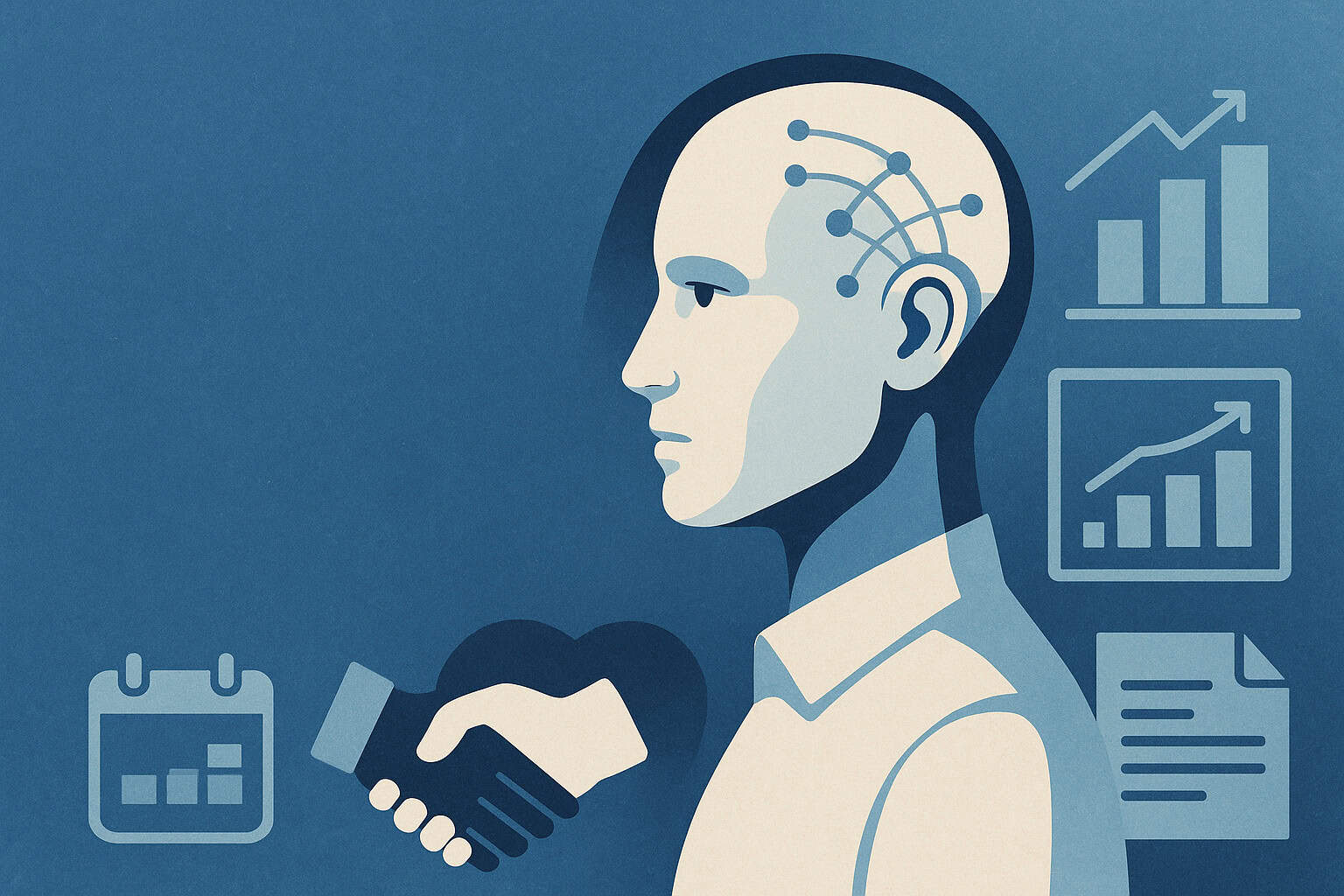Top 10 AI Trends Explained
Top 10 AI Stats & Trends
Artificial Intelligence (AI) continues to revolutionize industries, reshape economies, and redefine how businesses operate. By 2025, AI is expected to reach new heights, with advancements in machine learning, automation, and generative AI transforming everything from marketing to healthcare.
In this blog post, we’ll explore the top 10 AI statistics and trends.
1. The AI Market Will Exceed $1.8 Trillion by 2030
AI adoption is skyrocketing, with the global AI market projected to grow from 500 billion in 2024 to over 1.8 trillion by 2030 (Source: Statista). Companies across industries—finance, healthcare, retail, and manufacturing—are investing heavily in AI-driven solutions to enhance efficiency and decision-making.
Key Drivers:
Increased demand for automation
Growth in generative AI tools (like ChatGPT & Midjourney)
Expansion of AI in cloud computing
2. 95% of Customer Interactions Will Be AI-Powered by 2025
Gartner predicts that 95% of customer service interactions will be handled by AI chatbots and virtual assistants by 2025. Businesses are leveraging AI to provide 24/7 customer support, reduce response times, and personalize user experiences.
Examples of AI in Customer Service:
Chatbots (e.g., Zendesk, Intercom)
AI-powered email responses (Gmail’s Smart Reply)
Voice assistants (Alexa, Siri, Google Assistant)
3. AI Will Create 97 Million New Jobs by 2025
While AI is often seen as a job disruptor, the World Economic Forum (WEF) estimates that AI will create 97 million new jobs by 2025, offsetting the 85 million jobs it may displace.
Emerging AI-Driven Roles:
AI Trainers & Ethicists
Data Annotation Specialists
AI-Powered Cybersecurity Analysts
4. 70% of Enterprises Will Use Generative AI by 2025
Generative AI tools like ChatGPT, DALL·E, and Claude are transforming content creation, design, and marketing. According to McKinsey, 70% of enterprises will integrate generative AI into their workflows by 2025.
Use Cases of Generative AI:
Automated content writing (blogs, social media posts)
AI-generated images & videos (Midjourney, Runway ML)
Code generation (GitHub Copilot)
5. AI in Healthcare Will Save $150 Billion Annually by 2026
AI is revolutionizing healthcare with predictive diagnostics, robotic surgeries, and personalized medicine. Accenture estimates that AI applications could save the U.S. healthcare system $150 billion per year by 2026.
AI Healthcare Innovations:
AI-powered diagnostics (IBM Watson Health)
Drug discovery acceleration (DeepMind’s AlphaFold)
Virtual nursing assistants
6. AI Will Power 30% of Digital Marketing Campaigns by 2025
Marketing is becoming increasingly AI-driven. A report by Salesforce suggests that 30% of digital marketing campaigns will be AI-generated by 2025, from ad targeting to content creation.
AI Marketing Tools to Watch:
ChatGPT for ad copywriting
AI-driven SEO tools (SurferSEO, Clearscope)
Predictive analytics for customer behavior
7. Autonomous Vehicles Will Reduce Traffic Deaths by 50%
Self-driving cars, powered by AI, are expected to reduce traffic fatalities by 50% by 2030 (NHTSA). Companies like Tesla, Waymo, and Cruise are leading the charge in autonomous vehicle technology.
Key AI Features in Autonomous Cars:
Real-time object detection
Predictive accident avoidance
AI-powered route optimization
8. AI Will Detect 85% of Cybersecurity Threats by 2025
With cyberattacks on the rise, AI is becoming essential in threat detection. According to Capgemini, 85% of cybersecurity operations will rely on AI-driven solutions by 2025.
AI Cybersecurity Applications:
Anomaly detection in network traffic
Automated phishing detection
AI-powered fraud prevention
9. AI in E-Commerce Will Boost Sales by 30%
AI is transforming online shopping with personalized recommendations, chatbots, and visual search. A report by Business Insider suggests that AI-driven e-commerce strategies can increase sales by up to 30%.
AI E-Commerce Trends:
AI-powered product recommendations (Amazon’s algorithm)
Virtual try-ons (AR & AI)
Dynamic pricing optimization
10. AI Ethics & Regulation Will Become a Top Priority
As AI grows, so do concerns about bias, privacy, and misuse. Governments worldwide are implementing AI regulations, such as the EU AI Act, to ensure ethical AI deployment.
Key AI Ethics Challenges in 2025:
Preventing algorithmic bias
Ensuring data privacy (GDPR compliance)
Regulating deepfake technology
AI in 2025 & Beyond
AI is no longer a futuristic concept—it’s here, and it’s evolving rapidly. From automating customer service to revolutionizing healthcare, AI is set to transform every industry by 2025.
Businesses that embrace AI early will gain a competitive edge, while those that lag behind risk falling obsolete. The key is to leverage AI responsibly, ensuring ethical use and continuous learning.
What’s Next?
Stay updated on AI trends (follow AI research labs like OpenAI & DeepMind)
Experiment with AI tools (ChatGPT, Midjourney, Claude)
Invest in AI upskilling (learn prompt engineering, data science)
The future of AI is bright—are you ready for it?

